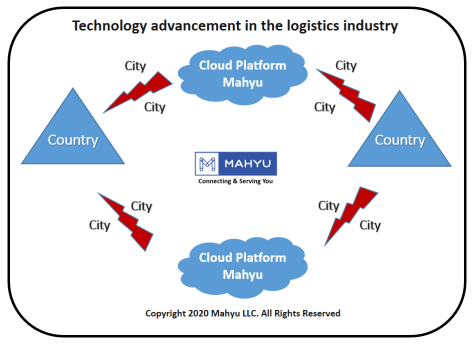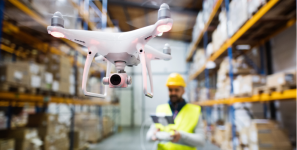Technological Advancement in the Logistics Industry
In the last ten years, the rise of over 3.5 billion registered users participating in global e-commerce has occurred. The ease and openness of the e-commerce industry allow individuals and businesses to participate in domestic and international e-commerce trade platform, giving each country the opportunity to scale up its workforce and revenue collection. With the help of technological advances, products are now being introduced by the Internet through social media, live streaming, and many more avenues, rather than the traditional sales marketing and advertising methods. The growth of e-commerce has also affected the logistics infrastructure requirements and needs.
Logistics company owners are left with a variety of problems due to the ever-changing e-commerce world, including proper storage, competitive pricing, quick delivery, and fluctuating quantities and unpredictable changes. Though most are eager to find a solution, many have yet to realize that the solution requires full technology integration. Consistent system maintenance and development, integrating sales, operations, administration, and financial functions, connecting and configuring a variety of endpoints, protection from cyber-attacks, and many other functions are essential to creating a cost-effective and productive company during the internet era. With a complexity of technology system operations, it is best for companies to partner with a trusted technology company in developing a logistics platform that will deliver multiple benefits and develop long-term commercial ties.
The availability of a technology platform that works without geographical boundaries will have a huge impact on e-commerce and logistics users because they will be able to collaborate and cooperate with each other under one platform on every computer and smartphone device. Each user in real-time is able to list detailed logistics requirements and services to include pricing schemes, transportation schedules, warehouse spaces, detailed information operations, and others. Additionally, a working relationship with only particular companies and owning branch offices, warehouses, and vehicles in other countries should be transitioned into more transparent cooperation with local companies. Being able to share resources with trusted local companies will give advantages in speeding up operation processes and minimize cost while reducing investment risks.

Internet commerce trade will reach global sales of 17.5 percent in 2021 with a compound annual rate of 15 percent. As a result, many countries have introduced new regulations for e-commerce items that have created confusion and problems for many companies. These e-commerce regulations are overlapping with non-e-commerce items, resulting in a delay in clearance. In addition, when the pandemic lockdown period is lifted, we will see an increase of international and regional trades with the rise of conflict as a result of slow information distribution, causing delays and missed delivery dates.
We are at a point that it is almost impossible for companies to function properly without technological help in recalling HS code numbers, custom tax code, restriction and document requirements, operation notification and monitoring, and many others. With the availability of a real-time crowd sharing platform that is accessible for users, business and logistics transactions are a click away to finalize. Companies should prepare to meet unprecedented regional and international unexpected trades challenge in the internet era, nothing has ever flourished entirely alone: the logistics industry needs an advanced technological integration platform to flourish in the e-commerce era.
_______________________________________________________________________
Eddy Syaifulah is the head of Mahyu LLC.





Leave a Reply